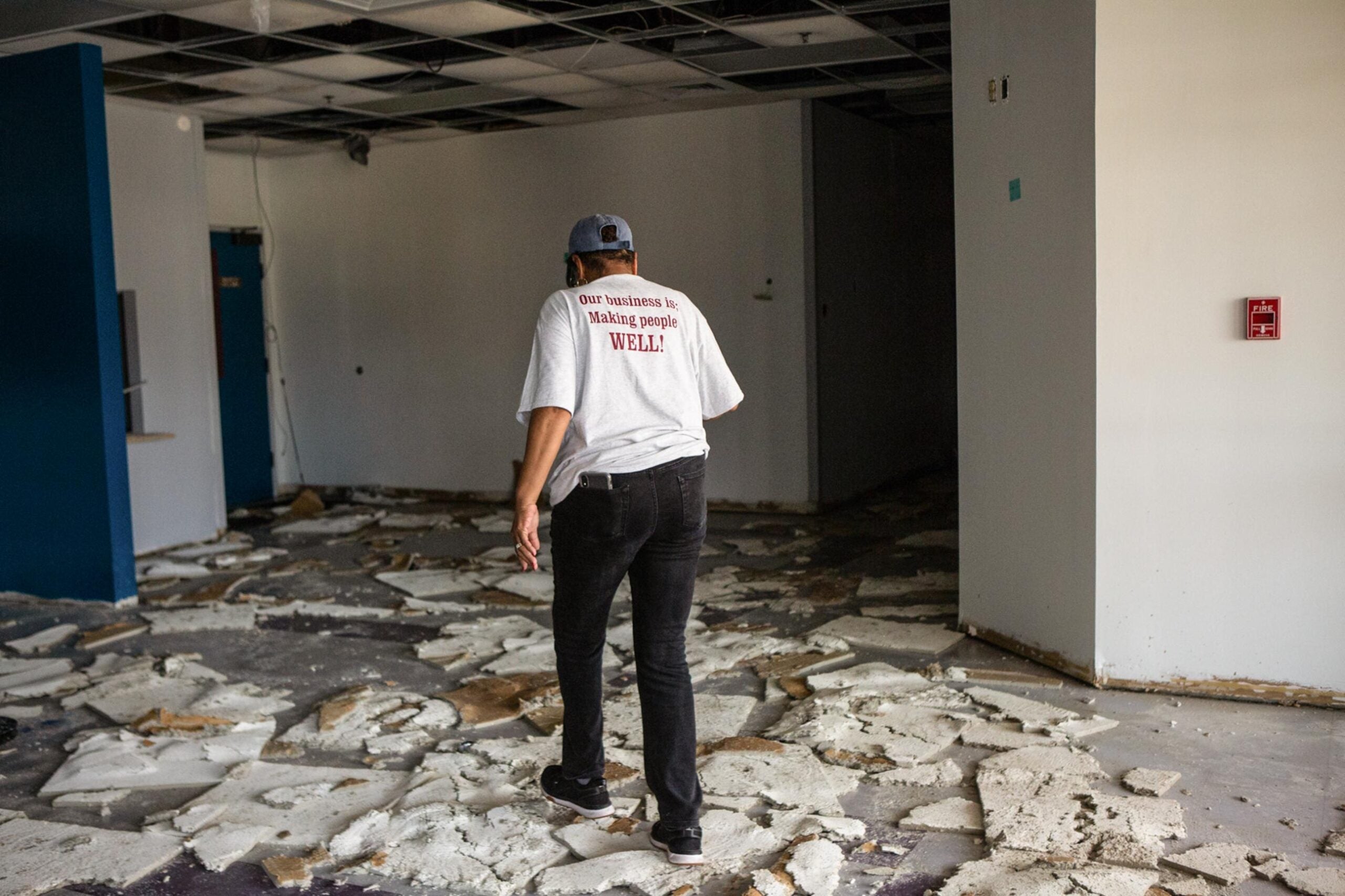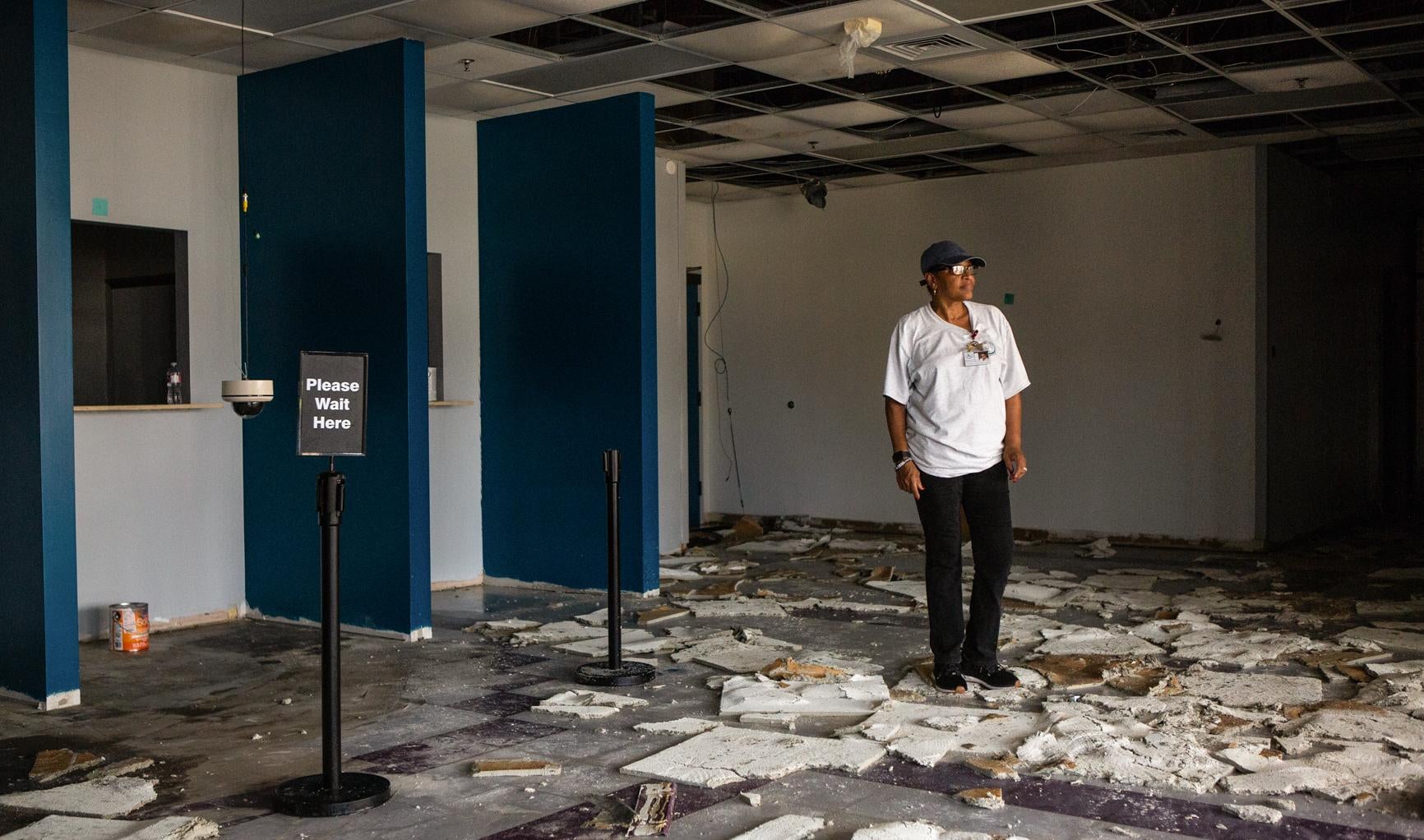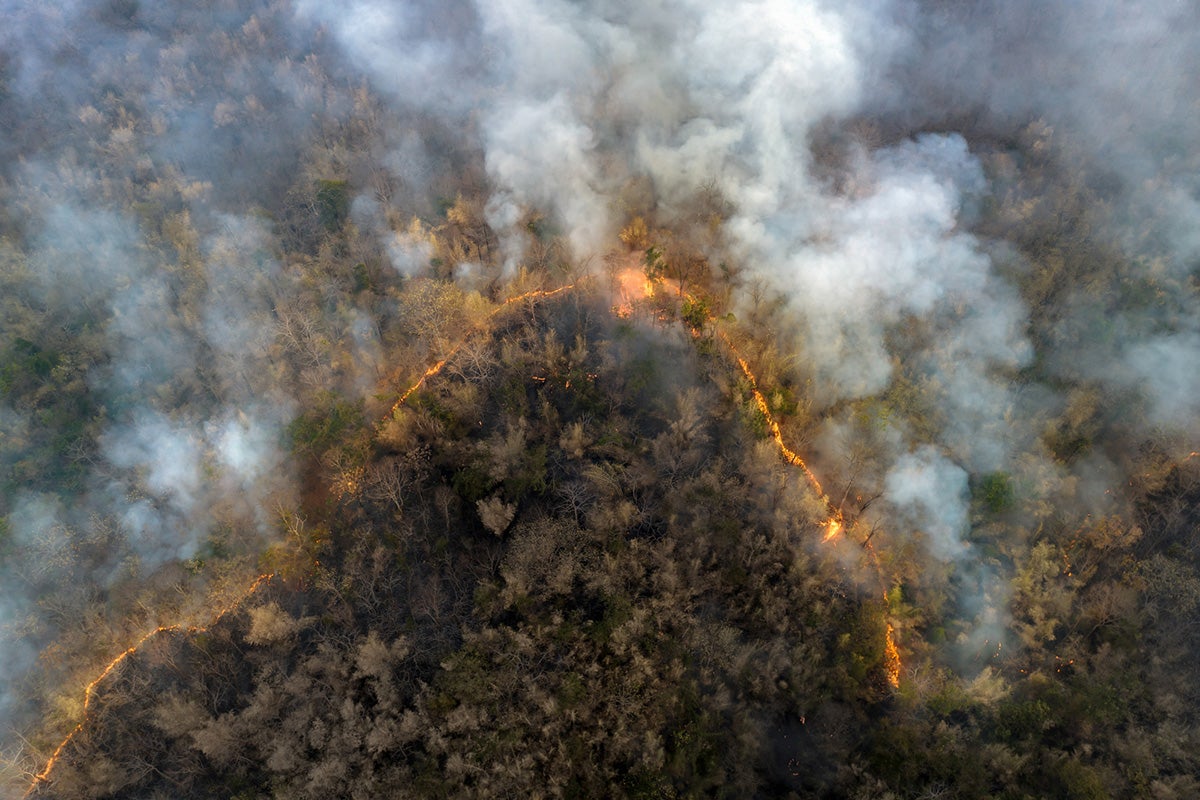Frontline Health Clinics’ Knowledge, Motivators, and Behaviors on Climate Change

Extreme weather events like hurricanes, wildfires, and heat waves can disrupt patient care, and frontline health clinics providing safety-net care to populations most vulnerable to climate-related extreme weather events are seeking ways to keep their patients protected from climate risks.
In 2021, Harvard Chan C-CHANGE and Americares conducted a national, cross-sectional survey of administrators, case workers, providers, and other staff at frontline clinics in 43 states. The survey results, published in BMC Primary Care, are the first to assess climate and health knowledge, motivators, preferences, and needs of all staff at frontline safety net clinics, not just health care providers, and helps identify what clinics need to improve climate resilience.
Key Takeaways
All respondents (n=430):
- Most respondents (81.5%) say that climate-related extreme events caused some kind of disruption in clinical care delivery over the last three years.
- Disruptions from the extreme events included power outages (52.8%), closures of clinics (52.3%), problems with access to the clinic (42.5%), and staff shortages (40.2%), among others.
- About half of total respondents (54.4%) said they have plans in place to address risks to health care access and delivery during extreme weather.
- The greatest need of clinics before, during, and after extreme weather events was emergency power (63.9%), real-time information related to the impacts of the event (51.9%), access to emergency services (47.4%), and financial assistance (42.9%).
- Approximately half (52.2%) of respondents reported they were motivated to use resources to improve climate change clinical preparedness, and they prefer succinct materials like checklists, planning guides, and brief information sheets to do so.
- Respondents who agreed that climate change is caused by humans were four times more motivated to use clinic resilience resources, and those who reported higher knowledge of climate effects on health had 50% more motivation to use resources.
Providers and case workers (n=141):
- 84.4% of providers and case workers reported climate change is impacting patient health.
- Direct patient care staff like providers and case workers were more likely to discuss climate change with patients if they believe that climate change affects patient health.
- A little more than one-third (36.3%) say they discuss climate-related health risks with patients.
- The most discussed risks were extreme heat (78.4%), worsening allergy seasons (66.7%), and air pollution (60.8%).
- Almost half of the providers and case managers (44.7%) reported they lacked confidence in developing disease management plans to protect patients from climate impacts.
In response to the survey, Harvard Chan C-CHANGE and Americares developed the Climate Resilience for Frontline Clinics Toolkit in 2022, which provides free online resources in English and Spanish for patients, providers, and clinic administrators on extreme heat, wildfires and wildfire smoke, hurricanes, and flooding. The toolkit has been piloted by clinics around the country, and an expanded version was released in 2024. To date, the materials in the toolkit have been downloaded over 20,000 times.
Authors
Wiskel, T., Miles, T.T., Fonteyn, M. et al. Frontline clinic perspectives on climate change, human health, and resilience: a national cross-sectional survey. BMC Prim. Care 25, 399 (2024). https://doi.org/10.1186/s12875-024-02622-y


